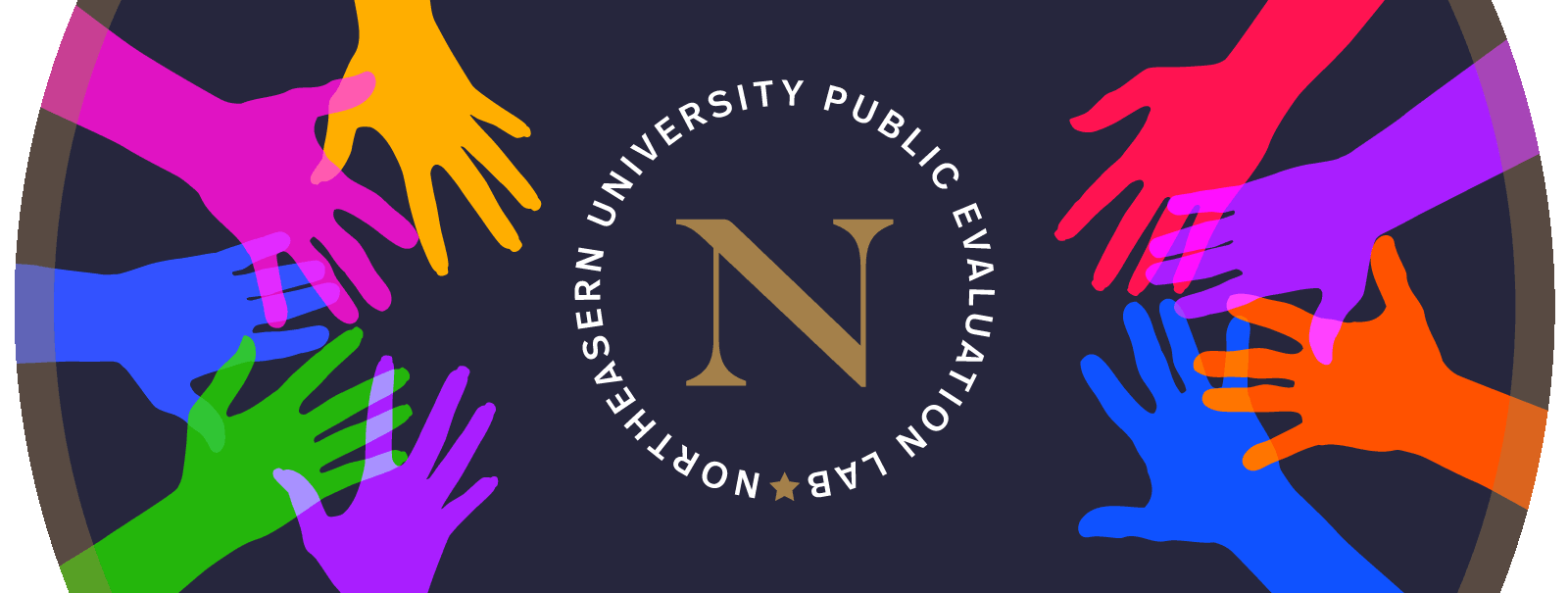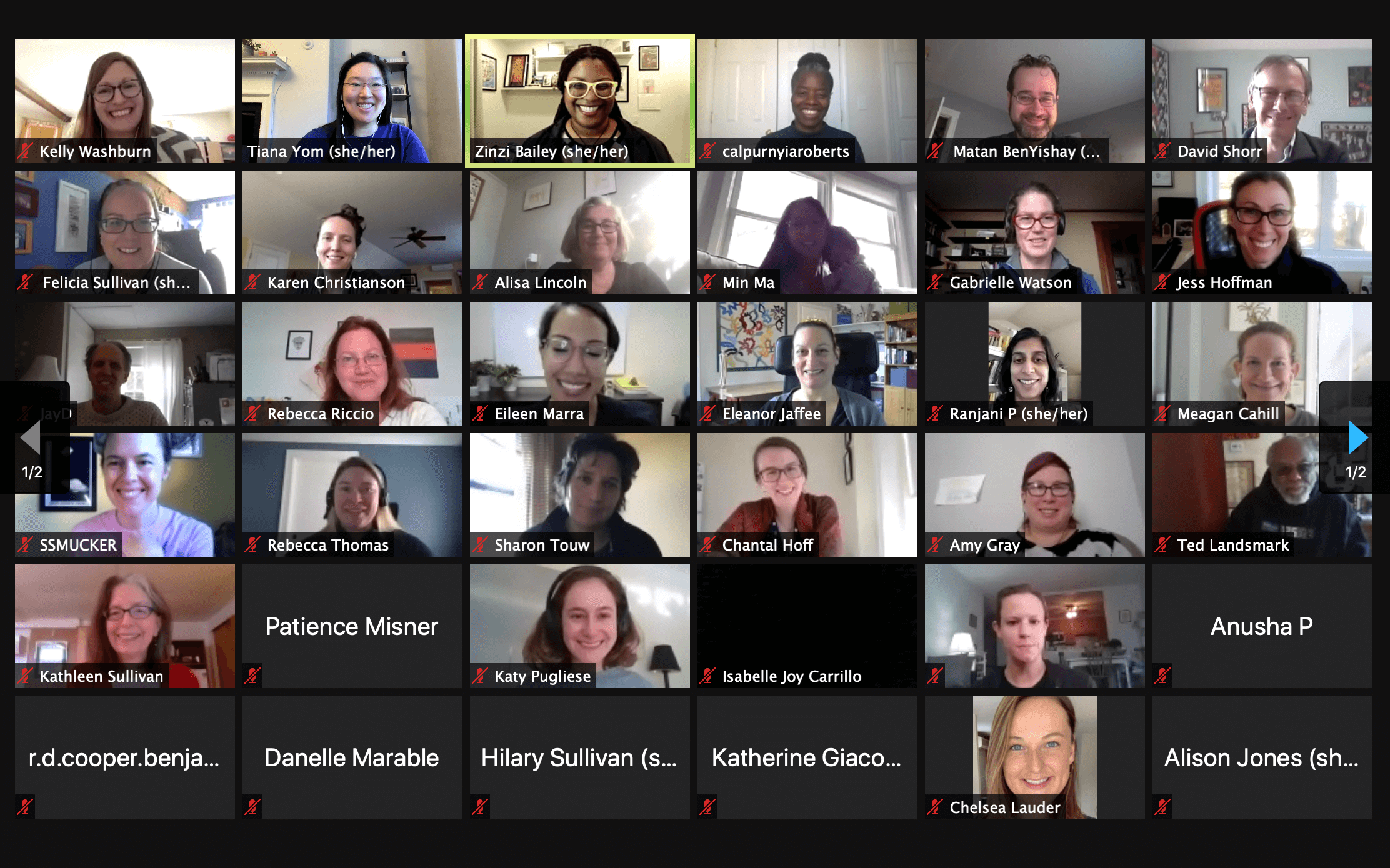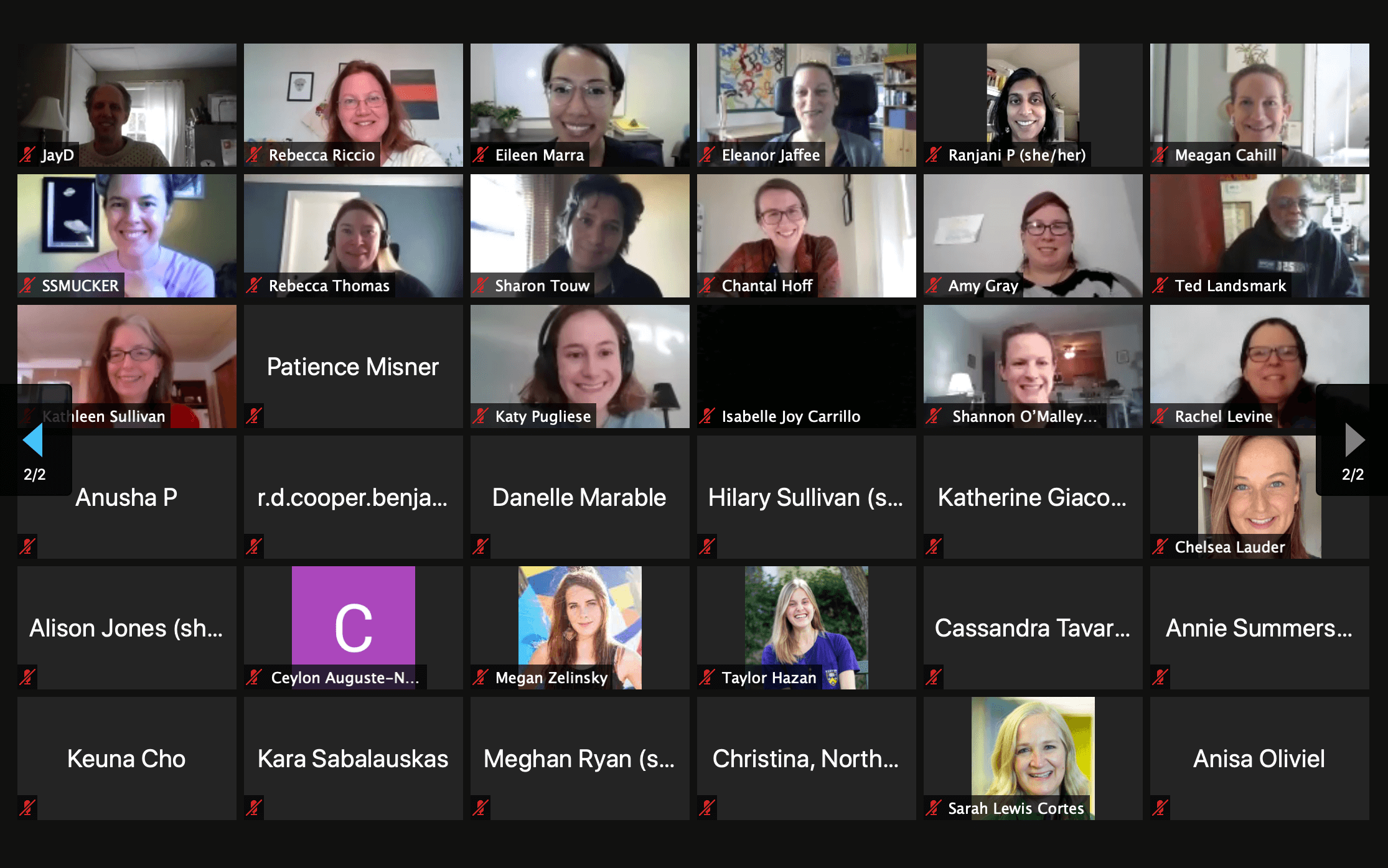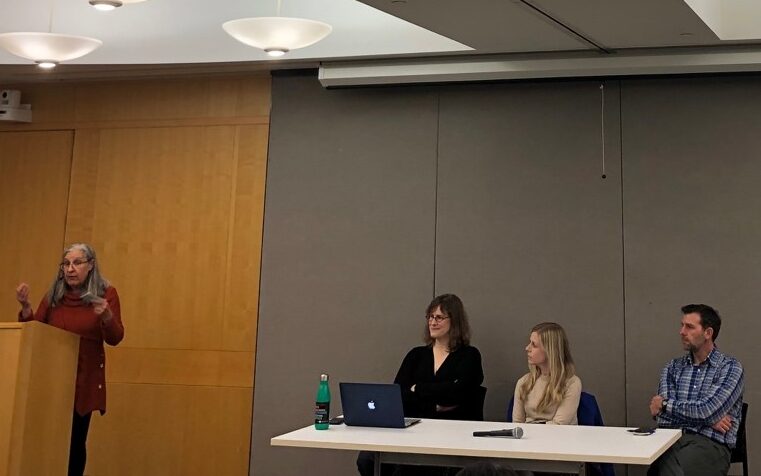
NU-PEL is an interdisciplinary, multigenerational lab comprised of faculty and student teams conducting culturally responsive and equitable evaluation research. The lab is a collaboration of the Institute on Health Equity and Social Justice Research (IHESJR) in Bouvé College of Health Sciences and the Center on Crime, Race, and Justice.
The overall vision of NU-PEL is to build community-academic partnerships to improve the well-being of communities through evaluation research and support. Driven by Social Justice and Community-Based Participatory Research frameworks, we bring together expertise and resources to advance our three pillars.
1
Build collaborations and share evaluation knowledge and expertise across Northeastern global community
2
Provide evaluation and consultative services to community organizations with the mission of improving the health, well-being, and safety of the people impacted by these organizations
3
Train undergraduate and graduate students in the techniques of program evaluation through experiential learning opportunities
NU-PEL’s team has over 20 years of professional program evaluation experience. Collectively, we have received funding from national, state, and local agencies including NSF, SAMHSA, NIJ, U.S. Department of Justice, NIH, NEA, Massachusetts Department of Public Health, Massachusetts Executive Office of Public Safety and Security, and Boston Public Health Commission.
In addition, NU-PEL has received support from the Robert Wood Johnson Foundation and the W.K. Kellogg Foundation.
The Northeastern University Public Evaluation Lab (NU-PEL) and the Greater Boston Evaluation Network (GEBN) co-hosted a virtual event to continue their Culturally Responsive Evaluation (CRE) series.
To embed and center diversity, equity, and inclusion in evaluation and assessment practices, there is an increasing need to focus on the role of culture. Dr. Mindelyn Anderson, founder of Mirror Group, LLC, led a Part II to the 90-minute interactive learning session that took place last November, where participants were be able to draft and practice creating tools for building CRE into an evaluation.
There were over 60 actively engaged participants across non-profit organizations, higher education institutions, foundations, and local city agencies.
To link to the webinar can be found here.
As a community-academic collaborative response to the ongoing social injustices and be in solidarity with Black Lives Matter, the Northeastern University Public Evaluation Lab (NU-PEL)’s Director, Tiana Yom, and the Greater Boston Evaluation Network (GBEN)’s Programming Team, Kelly Washburn and Calpurnynia Roberts, have partnered to create a virtual, year-long professional development and training series, focusing on Culturally Responsive Evaluation (CRE).
The inaugural event took place on November 16, 2020, with guest speaker, Dr. Zinzi Bailey from University of Miami Miller School of Medicine and the Robert Wood Johnson Foundation’s Interdisciplinary Research Leaders program.
Dr. Bailey presented an introductory webinar on the history of CRE, guided participants through a case study of Team Justice for Native Children to show what and how CRE looks like in practice as well as provided several ways in which evaluators can actively deconstruct racist practices in evaluation and research in order to best identify and meet the needs of the community members.
There was a diverse group of participants from various academic and non-academic backgrounds, ranging from university students to senior leadership members at large-scale non-profit organizations. The event ended with a Q&A section where there were insightful dialogues on active versus passive antiracist approaches and what CRE can continue to look like present day and beyond.
The link to the webinar can be found here.
NU-PEL and GBEN are committed to engaging in culturally responsive evaluation efforts and high-impact, community-engaged research to promote health equity, racial equity, and social justice. We look forward to continuing this very important CRE series.


Northeastern University’s Public Evaluation Lab (a collaboration between the Institute for Health Equity and Social Justice Research and the Institute for Race and Justice) and the Greater Boston Evaluation Network co-sponsored a panel presentation on impact evaluations on February 5, 2019 at Northeastern University. This collaboration brought together five internal and external evaluation leaders who have recently implemented Randomized Control Trials or quasi-experimental impact evaluations.
The presentation explored what drives the decision to engage in an impact evaluation, how to choose methodology, lessons learned about communicating results, and how barriers of implementing this evaluation method. The panel was attended by Northeastern faculty, staff, and students as well as members from a wide range of Boston area community organizations.
Moderator: Laurie Dopkins, former Executive Director of Northeastern University Public Evaluation Lab
Laura Senier is an Assistant Professor in Sociology and Anthropology and Health Sciences. Her research interests include the sociology of medicine and public health, community environmental health, and environmental justice. Dr. Senier’s research, The Health Effects of Access to Green and Blue Spaces in Urban Environments will pilot methods to assess exposure to green and blue spaces and explore how these recreational amenities are associated with overall health, emotional health, and well-being among teens in several Boston neighborhoods. The terms green and blue spaces are drawn from the literature on therapeutic landscapes; the former is generally taken to mean parks, playgrounds, and open space, while the latter is taken to mean rivers, streams, and beaches. There is a large and growing body of literature that suggests that exposure to green space is beneficial for a range of health outcomes, especially mental health; while blue space has not been studied as extensively, it is a logical next frontier in this current of research.
Dr. Laura Cordisco Tsai, is a social work researcher and practitioner specializing in human trafficking and gender-based violence (GBV). Her research broadly targets the development of more empowering and effective services for people who have been trafficked, with a specific focus on strengthening economic empowerment and re/integration support programming for human trafficking survivors in Southeast Asia. In 2016, Dr. Cordisco Tsai completed a participatory assessment of Eleison Foundation’s savings and financial capability program for survivors of human trafficking and their family members in the Philippines utilizing photovoice. In this study, survivors were active partners throughout the entire research process — including data collection, analysis, and dissemination. Study findings were utilized to strengthen Eleison’s programming. She is currently conducting another photovoice study focusing on the meaning of economic empowerment to human trafficking and GBV survivors in the Philippines. The findings from this study will be utilized to ensure that economic empowerment services provided by a local partner organization are implemented in a way that is consistent with the goals and priorities of survivors themselves.
Dr. Balvanz has over a decade of experience leading complex public health research and cultural immersion programs internationally and domestically. His research background includes international program design, training, implementation and management, quality assurance, qualitative and quantitative research design and analysis, and community engagement. Dr. Balvanz was part of a team that did an Action Oriented Community Diagnosis in Caswell County North Carolina. Through literature review and key informant interviews the community thought childhood obesity was the most pressing problem in the community. They recruited 7 adolescent girls to participate across four sessions of photovoice. Among the various determinants participants thought there was: lack of access to health foods; community disrepair increased their fear and prevented them from walking in areas of their community. They believed they needed more mentors. Results were presented at the University of North Carolina and to a forum of community advocates and middle schoolers. The team applied and received funding to conduct a town walkability assessment wherein participants were paired with senior citizens to conduct the assessment. Results were presented to city council and given to the Town Manager. Subsequent funding was received to build an inter-generational community garden.

The College of Social Sciences and Humanities (CSSH) is offering Experiential Learning Opportunities through their Summer 2019 March Incentive Initiative for Stipend Graduate Assistants (SGA) funding. This effort will provide opportunities for CSSH doctoral students to obtain a Summer SGA (equivalent to funding for a fifteen-week semester) and thus furthers the college’s efforts to provide full-year SGA support to an increasing number of doctoral students. This incentive program provides faculty members, research centers, and external partners the opportunity to work with an SGA for summer 2019.
The Institute for Health Equity and Social Justice Research’s own SGA, Alexandra Alden has been awarded one of these opportunities. Alex is a doctoral student in Sociology and has been working as an SGA at the Institute for 3 years. Through the Northeastern Public Evaluation Lab (a collaboration between IHESJR and the Institute on Race and Justice) she will be continuing the long collaboration IHESJR has with the Boston Public Health Commission (BPHC). She will work with BPHC’s Office of Health Equity (OHE) to evaluate their quality improvement techniques to equity driven change, called Equity Change Projects. These projects are the Commission’s internal effort to change practices in both business and programs and service to better address their strategic priority of eliminating racial and other health inequities.